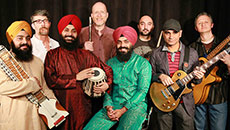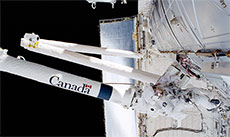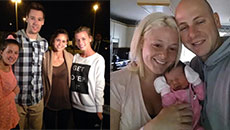TORONTO - Canada is donating several hundred doses of a made-in-Canada experimental Ebola vaccine to help in the West African outbreak response, the federal government revealed Tuesday.
Though precise numbers still need to be worked out, the donation is expected to be in the range of between 800 and 1,000 doses, the government said. As well, Canada is giving the World Health Organization an extra $185,000 — on top of earlier aid totalling $5.2 million — to help with the response to this long and challenging outbreak.
Health Minister Rona Ambrose offered the vaccine to WHO Director General Margaret Chan in a telephone conversation Tuesday, the minister's office said in a release.
"Our government is committed to doing everything we can to support our international partners, including providing staff to assist with the outbreak response, funding and access to our experimental vaccine," Ambrose said.
The news came hours after the World Health Organization announced that a panel of experts it convened had decided that it would be ethical to use untested drugs and vaccine in this epidemic, which is several times larger than any previous outbreak and is proving hard to contain.
That meeting followed the recent announcement that two infected American relief workers became the first people to be treated with an experimental therapy called ZMapp, a cocktail of three monoclonal antibodies. These antibodies — two of which were designed at the National Microbiology Laboratory in Winnipeg — target specific sites on the Ebola virus.
That use of a previously untested therapy broke a logjam that has long bedevilled research into Ebola countermeasures. A number have looked good over the years when tested in primates — including the Canadian vaccine and ZMapp. In fact, in primates the Canadian vaccine seems not only to prevent infection, but to stave off severe disease if given shortly after exposure to the virus.
But in order to know if these tools actually work in humans they would need to be given to people infected with Ebola.
The notion of using untested Ebola drugs or vaccines in Africa was previously seen as a non-starter. So research agencies like the Public Health Agency or the U.S. National Institute of Allergy and Infectious Diseases have assumed they would need to do initial safety testing of the products in North America before they could be used in Africa.

To that end, the Public Health Agency got a German vaccine production facility to make doses — somewhere around 1,500 — of the experimental vaccine earlier this year. The vaccine, which is not linked at this point to a major drug company, goes by the name VSV-EBOV. Canada owns the intellectual property.
The cost of producing the vaccine illustrates why supplies of experimental Ebola products are in such limited supply. Taylor said the price for producing this batch was between $1,000 and $1,400 per dose.
Just how much vaccine Canada has is a bit of a guess at this point. Because the product hasn't been tested in people, it's not known how much vaccine an individual would need to be protected. For the time being, the size of a dose is being extrapolated from the research that has been done on primates. The supplies were to be used for clinical trials.
But as this outbreak has raged on, spreading from Guinea to Sierra Leone and Liberia and now — alarmingly — to Africa's most populous country, Nigeria, the Public Health Agency's ethics committee concluded that some of the experimental vaccine should be made available to the response effort, said Dr. Gregory Taylor, the agency's deputy head.
"We see this as a global resource and we need to have some conversations to figure out what the best use of this experimental vaccine is," Taylor said in an interview.
He acknowledged the number of available doses is small in terms of the overall need.
Taylor said the agency would be discussing options with international partners, the WHO and the affected countries over the coming days to try to come up with a plan for the best use of what is a limited number of vaccine doses.
"It's tough to be speedy. But we're trying to make this as speedy and fast as we possibly can, because of what's going on in Africa."
The early thinking is that it should be offered to health-care workers caring for the infected. They have paid a heavy toll in this outbreak, making up close to 10 per cent of all cases. But even if the supplies are targeted at health-care workers, there won't be enough vaccine to protect all who are at risk.
Ten doses of the vaccine have already been sent to a Geneva hospital, on the request of the WHO and the relief agency Medecins Sans Frontieres (Doctors Without Borders). That vaccine is an emergency supply that could be used if a response worker became infected, Taylor said.
The agency will hold back some doses to do toxicology studies on the vaccine and other small studies, Taylor said. As well, Canada would want to have some doses on hand to offer health-care workers if someone with Ebola travelled to Canada and turned up in a hospital here.
He said the agency hopes that people in the field who get the vaccine can be studied, so something is learned from this unprecedented use of experimental Ebola therapeutics.
The Canadian vaccine is one of two main candidate vaccines for Ebola. The other, designed at the National Institute of Allergy and Infectious Diseases, is set to go into initial human safety trials in the U.S. in September. The institute's director, Dr. Anthony Fauci, has said he hopes the study could be completed by January. If all works well, supplies of that vaccine could be available in late 2015, Fauci says.





